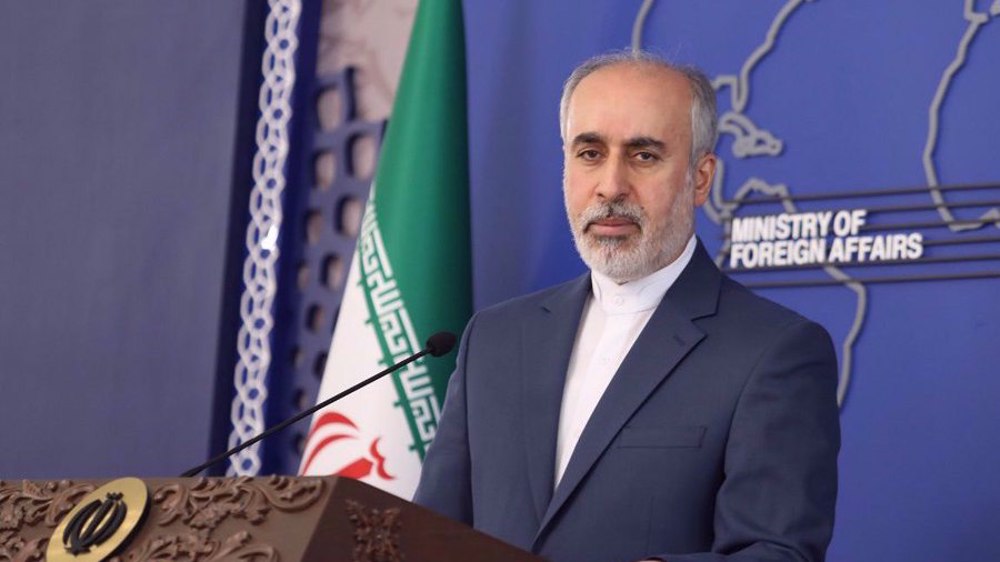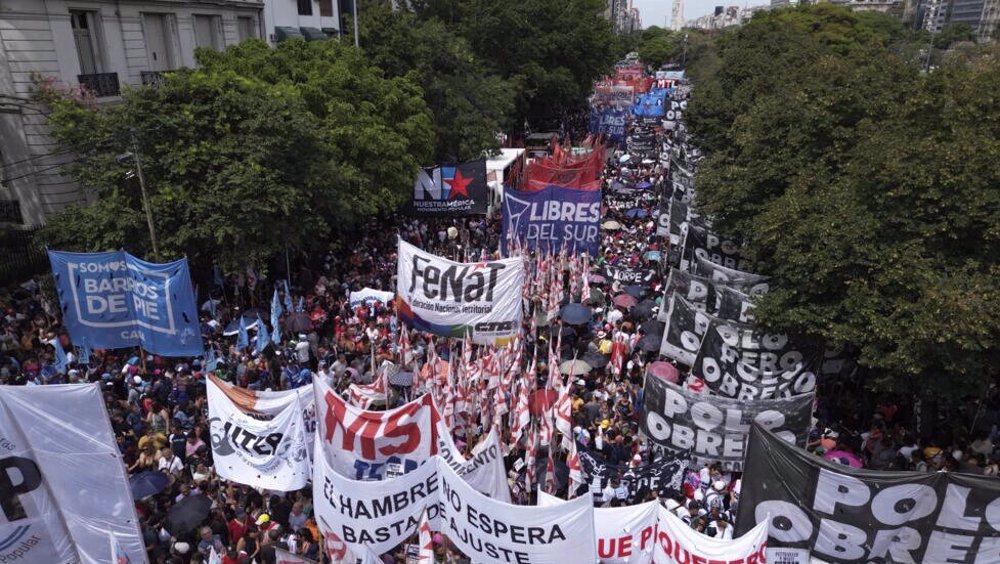1000s of Argentinians protest govt. economic policies
Tens of thousands of Argentinians have poured onto to the streets of the capital, Buenos Aires, to express their dissatisfaction with President Mauricio Macri's economic reforms and state job cuts.
Members of workers’ groups, trade unions, consumer bodies, social and human rights organizations as well as students took part in Friday’s massive protest, which was held at the city’s various landmarks, including Plaza de Mayo and Plaza Miserere.
Waving national flags, the demonstrators decried government cutbacks and redundancies in the public sector during the event dubbed the "federal march."

In a speech to the rally, Pablo Micheli, the secretary general of the Argentine Workers' Union, warned of “a social conflict” in case of inaction by the government, saying, "If they don't listen to us, sooner or later, there will be a nationwide strike."
“On top of everything else, they increase our electricity, the gas, water as well as our general living conditions with a 42 percent inflation hike,” protester Federico Alonso said.

Center-right Macri came to power last December with promises to revive Argentina’s stagnant economy, attract foreign investment, cut bloated spending, curb deficit and decrease the inflation rate.
Since then, he has lifted currency controls, fired thousands of government workers, cut energy subsidies, lowered import barriers and freed grains exports after years of tight curbs.
The layoffs and utility price hikes have stoked unrest in the Latin American state.
Macri says the measures are needed to reinvigorate South America's second-largest economy and end economic distortions that have led to years of spiraling consumer prices.
However, critics, who took part in Friday’s march, argue that workers are being indiscriminately fired and people have their purchasing power curtailed.
"This is the response of social sectors that feel harmed," said Mariel Fornoni, who heads the Buenos Aires-based Management & Fit consultancy, adding, "The poverty and the economic recession can be seen on the streets."
Back in June, Argentina’s Finance Minister Alfonso Prat-Gay predicted that his country would probably have inflation of 40 to 42 percent this year.
Jamaica officially recognizes state of Palestine
Raeisi attends inauguration of Iran-built mage multipurpose project in Sri Lanka
'Sinwar still supervising Gaza war; Israel deliberately delaying talks on captives'
VIDEO | Press TV's news headlines
UK's Rwanda deportation plan morally disgraceful
VIDEO | Raeisi inaugurates Iranian-built mega multipurpose project in Sri Lanka
VIDEO | Italian parliament hosts book launch on Palestine's untamed resistance
Leader: Iran’s arms sector example of turning sanctions, hostilities into opportunity














 This makes it easy to access the Press TV website
This makes it easy to access the Press TV website